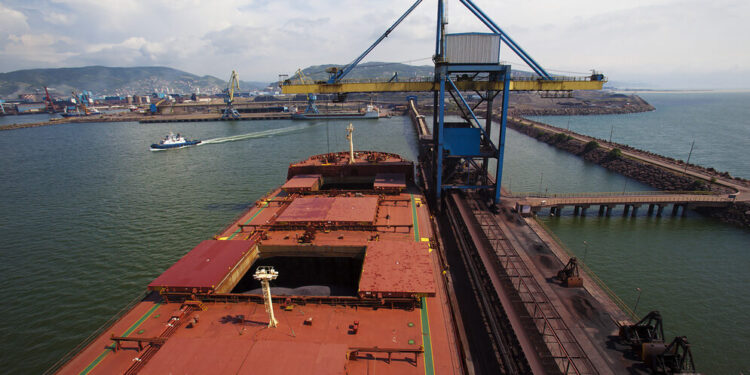
Above image is used for illustration purposes only / Credit: Shutterstock
Vessels fixed to load bulk iron ore fines cargo in Indonesia are reminded to make sure they receive the necessary documentation for carrying Group A cargoes in good time before loading commences, the North P&I Club advised.
The warning follows a recent case where a vessel arrived in Indonesia to load a cargo of iron ore fines (IOF) and following the receipt of the declaration and accompanying certificates, concerns arose with the shipper’s sampling and testing methods.
In particular, it was noted that there was potentially insufficient number of samples drawn to be representative of the full cargo and that the flow table method was used to determine the transportable moisture limit (TML).
GET THE SAFETY4SEA IN YOUR INBOX!
As explained, section 4.64 of the IMSBC Code provides detailed advice on the number and weight of samples required for concentrate cargoes but is less detailed with regard to unprocessed ores such as IOF. The sampling procedure for concentrates does, however, provide a useful guideline for other Group A cargoes.
Appendix 2 of the IMSBC Code lists the tests procedures for materials that may liquefy, one of which the flow table test. However, the results of a flow table test are open to subjective interpretation and, consequently, potential accuracy issues. The list also includes a procedure dedicated to testing IOF – the ‘Modified Proctor Fagerberg test for Iron Ore Fines’. This test is recommended in order to achieve more reliable results and allow greater confidence in the resultant TML.
Early identification of any documentary discrepancies or concerns is key to providing a timely resolution before loading and therefore minimizing delays. Calling vessels should ensure they receive the shipper’s declaration and test certificates well in advance to address any issues. If there are concerns, seek guidance from your usual P&I contact,
SOURCE READ THE FULL ARTICLE
https://safety4sea.com/ships-reminded-to-check-documentation-before-loading-indonesian-iron-ore-fines/